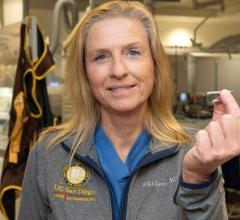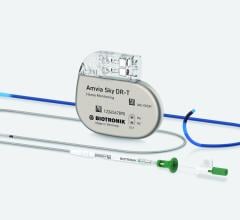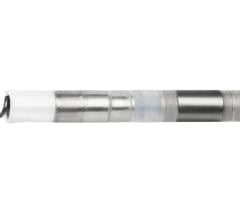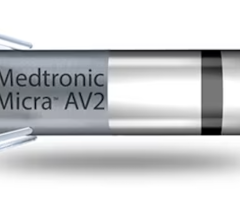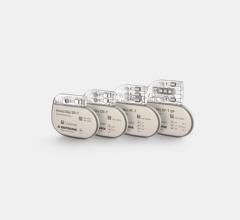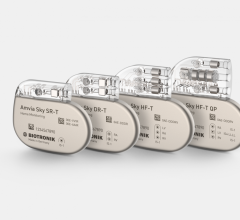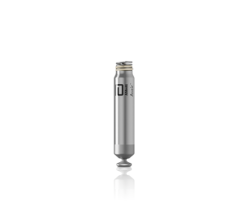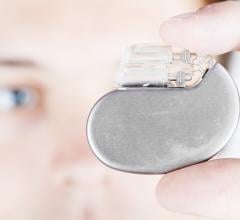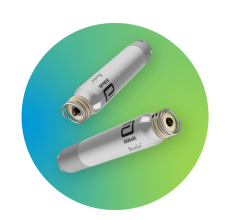
A new add-on to Medtronic's CareLink system remotely monitors fluid build-up in the thoracic cavity.
When cardiologists send their high-risk patients home, they may be protected with a host of tools, including implantable cardiac devices and pacemakers and strict regimens of medications.
While the tools and regimens are powerful, cardiologists know that they are still limited when it comes to preventing adverse events. Without constant check-ups, serious coronary issues can occur.
It is this reality that explains the growing popularity and use of home monitoring systems for cardiac physicians and patients. These systems promise to solve all the problems inherent in today's cardiology care for the critically ill by transmitting crucial patient data to doctors more often and more accurately. But what do these telemetry systems actually involve? What benefits do they provide to patients, and to cardiologists? And what proof exists for their ability to reduce major adverse coronary events?
Checking In
In the time between patient follow-up visits, the potential for serious cardiac events exists; coronary issues that can bring patients to the ER, increase the risk for mortality, and spike healthcare costs for physicians and patients. Home monitoring systems for cardiac patients attempt to step into this problem area, offering an opportunity for physicians to check in more regularly and head off major coronary events.
These systems come from a growing number of manufacturers and innovators, but many share some key characteristics. The tools work with telemetry, a means of transmitting information from the patient's home to a central company location or the doctor's office. The systems usually involve a form of wired or wireless communication through a special wand, computing device or even the patient's television.
CareLink is a system offered by Medtronic geared specifically for patients with implanted devices for their cardiovascular disease. Patients wave an antenna monitor over their device and the information is transmitted via a standard phone line or through a wireless component.
"Within minutes, the patient's physician and nurses can view data on a secure Internet website," said Tracy McNulty, public relations manager in the Cardiac Rhythm Disease Management division of Medtronic. "The information provides the physician with a comprehensive view of how the individual's heart and device are working. If needed, the physician can make adjustments to the patient's medication or prescribe additional therapy."
The information collected from home monitoring systems can include a wide variety of data toward this end. For patients with pacemakers and ICDs, the telemetry system can check device functioning and power, along with details on cardiac activity performed by the device. The systems can also collect vital sign information on a regular schedule, including heart rate, heart rhythm, weight, blood pressure, oxygen saturation and temperature. Finally, the systems can also collect subjective data, offering physicians a more comprehensive look at symptomology.
Boston Scientific offers the LATITUDE Patient Management system that checks data stored in cardiac devices made by the company. The Communicator plugs into a phone jack and power outlet, and collects information from the device wirelessly or via a wand. Additional functionality can also measure vital signs and ask symptom questions.
"While the system collects a tremendous amount of data, LATITUDE is smart enough to only send physicians the information they want, when they want it," said Annette Ruzicka, director of Media Relations at Boston Scientific. "Generally, LATITUDE provides more efficient and timely collection of actionable data that can lead to better patient outcomes and reduce costs."
Advantageous Additions
At the clinic, data from home monitoring systems are received, stored and analyzed. Depending on the system, the cardiologist and clinical team can access information at a secure Web site or through specific software. Either automatically or through some streamlined process, the data is usually sorted to pinpoint patients with emergent or potential problems. Therein lies the first major benefit to home monitoring for both patients and doctors.
"LATITUDE gives patients peace of mind to patients knowing that their health and device status is being monitored daily," said Ruzicka. "It helps improve patient outcomes by notifying the physician. Since these notifications often occur weeks or months before a normally scheduled follow-up, any earlier intervention can improve the clinical trajectory of these often fragile heart failure patients."?
In addition to feeling more secure in their care, patients may also realize costs savings, with less in-office visits that incur fees. Ideally, the patients will also have less complications and problems that can lead to emergency room trips and mortality risk.
Doctors benefit with home monitoring systems by having patients better comply with the regimens and treatments they've established. In most systems, it is a simple and quick task to check vital signs or device functioning, and often the system will have a built-in reminder mechanism. Cardiologists also can improve outcomes, with the ability to identify potential complications and critical events before they happen, and the potential to diagnose other problems earlier. Overall, home monitoring systems also promise improved and increased communication with both patients and other physicians.
"For the management of people with heart failure, the Medtronic CareLink Network also can help facilitate a timely exchange of device information between the clinical team, including electrophysiologists who implant and monitor CRT devices and cardiologists who follow the patient' heart failure condition,"? said McNulty.
Because of the significant benefits that home monitoring promises, many other major players in the medical device realm have also developed telemetry systems. Philips offers several options including Motiva, which turns the home television into a virtual health coach.? Patients receive reminders tailored toward their cardiac care, feedback and tracking and educational material. Other systems include HomMed telehealth monitors, St. Jude Medical's Housecall Plus and AMD Telemedicine's wide variety of telemetry devices.
Promise and Delivery
The promise of home monitoring systems is considerable. But do they deliver on their potential? Some companies point to their success stories.
"We have seen cases where heart failure patients who are at risk of decompensation often precipitate that event with dramatic weight gain," said Ruzicka. "Latitude has notified physicians if a patient's weight increases, averting a potential HF hospitalization and worsening HF. We also have cases where Latitude has identified new onset atrial fibrillation and notified the physician, resulting in appropriate anticoagulation medication, rhythm and rate control."
Other companies have put their devices under formal study. Philips compared their telemonitoring to nurse telephone support, and found lower mortality rates, 26 percent fewer hospital days per patient, 34 percent shorter length of stays and 10 percent net cost savings.
Medtronic is conducting several trials, including CONNECT, evaluating CareLink's ability to provide better care and reduce costs. A new add-on to their system remotely monitors fluid build-up in the thoracic cavity, and the PRECEDE-HF study is also underway to investigate its ability to prevent heart failure hospitalizations. Boston Scientific is also evaluating the predictive ability of LATITUDE and the preventive capability for heart failure hospitalizations in the DECODE trial.
At the same time, independent investigators are looking into home monitoring systems. Z. Ozlem Soran, M.D., MPH, an associate professor of Medicine and director of the EECP Research Lab at the University of Pittsburgh, led an investigation that calls into question the ability of home monitoring to reduce major adverse coronary events. His study group included Medicare beneficiaries, nonCaucasians and women, groups from a "real world" setting outside the academic medical center.
"Heart failure management programs hold tremendous promise for patients not receiving comprehensive care, but that does not mean i's universally effective," he said. "In our study, additional, sophisticated monitoring of HF patients with an interactive program had no statistically significant effect on cardiovascular deaths and readmission rates within six months after discharge."
Question of Efficacy
With the leaps and bounds in cardiac care technology over the last decades and even the last few years, patients are more protected than ever. Home monitoring may represent an even more advanced and effective way to improve care for critically ill cardiac patients. But when it comes to definitive proof that these systems can thwart complications and coronary events, the results are inconclusive. What is known is that these systems can provide very real benefits for both patients and physicians that improve both quality of life and care.



 May 02, 2025
May 02, 2025 
